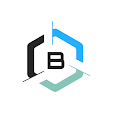One of the latest blockchain developments in the Hyperledger ecosystem is the release of Hyperledger Aries, a new framework for building and managing decentralized digital identities. Aries provides a set of tools and services that make it easier to build applications that leverage self-sovereign identity (SSI) technology, which allows individuals to control their own digital identities without relying on centralized entities. Aries is designed to work with other Hyperledger projects, such as Fabric and Indy, and it is well-suited for use cases that involve secure and efficient identity management, such as digital onboarding, KYC, and secure sharing of personal information.
Another exciting development in the Hyperledger ecosystem is the release of Hyperledger Ursa, a shared cryptographic library that provides a secure and efficient way to manage cryptographic operations in blockchain applications. Ursa provides a variety of cryptographic primitives and protocols, such as digital signatures, key management, and zero-knowledge proofs, that are essential for building secure and private blockchain applications. By sharing these primitives and protocols, Ursa helps to reduce duplication and improve security across the Hyperledger ecosystem.
Hyperledger also recently launched the Hyperledger Grid project, which is a platform for building supply chain solutions on blockchain technology. Grid provides a set of tools and services that make it easy to build and deploy applications that can track products and materials as they move through the supply chain, from sourcing to delivery. Grid also provides a set of standard data models and APIs that allow applications to share data and communicate with each other, making it easier to build interoperable supply chain solutions.
Hyperledger is also exploring new use cases for blockchain technology, including the development of decentralized autonomous organizations (DAOs). A DAO is a decentralized entity that is governed by smart contracts on a blockchain network. Hyperledger is working to develop new frameworks and tools that make it easier to build and manage DAOs, and it is exploring new ways to use DAOs to solve real-world problems, such as improving the efficiency and transparency of governance processes.
Another area of focus for Hyperledger is the development of blockchain-based platforms for the Internet of Things (IoT). Blockchain technology provides a secure and efficient way to manage and track the vast amounts of data generated by IoT devices, and Hyperledger is exploring new ways to leverage blockchain technology to build scalable and secure IoT solutions. Hyperledger is also working to develop new tools and services that make it easier to integrate IoT devices with blockchain networks, and it is exploring new use cases for IoT, such as supply chain management, energy management, and smart cities.
Hyperledger is also investing in research and development to improve the scalability and performance of blockchain technology. One of the key challenges facing blockchain technology is the need to balance security and scalability, and Hyperledger is working to find new ways to improve the performance of blockchain networks while maintaining the security and privacy of the data stored on the blockchain. Hyperledger is also exploring new consensus algorithms and data structures that can improve the efficiency and scalability of blockchain networks.
The Hyperledger development company has expertise in the Hyperledger framework and can help organizations create secure and scalable blockchain solutions. The company can help with the design and development of Hyperledger-based solutions, such as supply chain management, digital identity management, and secure document management.
In conclusion, the Hyperledger ecosystem is rapidly evolving, and it is seeing significant growth and development in a variety of areas, including decentralized digital identities, cryptographic libraries, supply chain management, decentralized autonomous organizations, and the Internet of Things. Hyperledger is committed to exploring new use cases for blockchain technology, and it is investing in research.





0 Comments